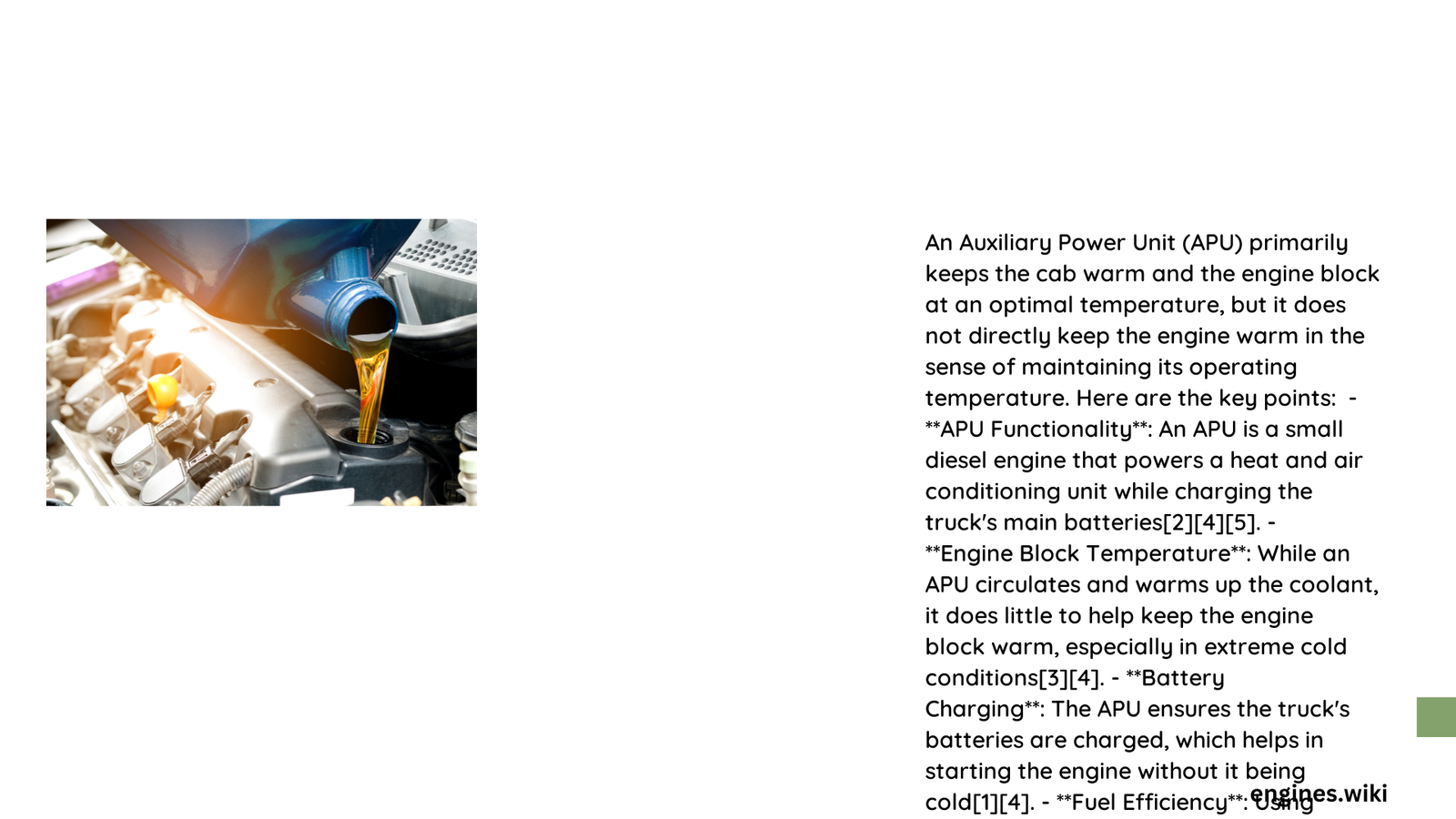Auxiliary Power Units (APUs) are sophisticated technological solutions designed to address engine temperature management challenges, providing consistent thermal regulation without continuous main engine operation. These compact power systems offer truck drivers and fleet operators an innovative method to maintain optimal engine temperatures, reduce fuel consumption, and enhance overall vehicle performance during idle periods.
What Makes APUs Critical for Engine Temperature Control?
How Do APUs Prevent Engine Temperature Drops?
APUs utilize advanced thermal management technologies to maintain consistent engine temperatures. Unlike traditional idling methods, these units provide targeted heating without excessive fuel consumption. Key mechanisms include:
- Electric Heating Systems: Generate precise thermal output
- Coolant Circulation: Maintain consistent engine block temperature
- Thermal Insulation: Prevent rapid heat dissipation
| APU Feature | Temperature Maintenance Capability |
|---|---|
| Electric Heating | 95-98% Efficiency |
| Coolant Circulation | Prevents Temperature Drops Below 40°F |
| Thermal Insulation | Reduces Heat Loss by 70-80% |
What Temperature Range Can APUs Maintain?
Modern APUs can maintain engine temperatures between 32°F to 180°F, ensuring optimal operational conditions across diverse environmental scenarios. This temperature range prevents:
- Cold-start engine stress
- Excessive fuel consumption
- Premature component wear
- Reduced lubrication effectiveness
Why Are APUs More Efficient Than Traditional Idling?
Traditional engine idling consumes significantly more fuel compared to APU thermal management. Consider these comparative statistics:
- Fuel Consumption:
- Main Engine Idling: 0.8-1.2 gallons/hour
-
APU Thermal Management: 0.1-0.3 gallons/hour
-
Cost Savings:
- Annual Fuel Savings: $2,500 – $8,750
- Reduced Maintenance Costs: 25-40%
Can APUs Work in Extreme Weather Conditions?
Advanced APUs incorporate robust design features enabling operation in extreme temperatures:
- Cold Weather Performance:
- Lithium battery systems maintain discharge power
- Enhanced coolant formulations prevent freezing
-
Integrated temperature sensors for adaptive heating
-
Hot Weather Adaptation:
- Automatic cooling mechanisms
- Thermal load balancing
- Radiator and condenser coil optimization
Technical Considerations for Optimal APU Performance

What Maintenance Ensures Consistent Thermal Management?
Effective APU maintenance involves:
- Regular coolant level checks
- Oil system inspections
- Belt and hose examinations
- Radiator cleaning
- Software updates
How Do Modern APUs Integrate with Vehicle Systems?
Contemporary APUs leverage:
– Telematics integration
– Real-time performance monitoring
– Predictive maintenance algorithms
– Automated diagnostic reporting
Conclusion
APUs represent a sophisticated solution for maintaining engine warmth, offering unprecedented thermal efficiency, reduced operational costs, and enhanced vehicle performance across diverse environmental conditions.
